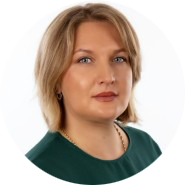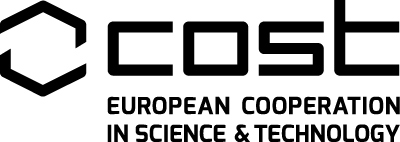Home > CA23138 – Port City Territories in Action: A collaborative Laboratory for Inclusive Energy Transition (PACT)
Supervisors:
,

Current position – Asoc. Professor
Experience – more than 15 years of experience in transport planning and simulation in the Riga municipality, more than 5 years in academic and research as a lecturer in TSI Certified specialist in using EMME software (traffic flow simulation).
Membership – Member of the Latvian Simulation and Modelling Society, Association “WOMEN IN TRANSPORT”
Teaching activity – Geography of Transport Systems (4ECTS, master level), Decision-Making Methodologies (2ECTS, master level), Sustainable Transport Interchanges (6ECTS, master level) and Procurement and reserve logistics (2ECTS, bachelor level).
Publication activity – Author/co-author of more than 17 research publications in journals and conference proceedings (indexed in SCOPUS/WoS).
Supervised theses – more than five master-level thesis supervision with the successful defence
Research fields/domains – simulation modelling, sustainable transportation, mobility, urban transport planning.
Motto – Don’t give up

Ports have long been hubs of energy transport and transformation–notably petroleum–; they are also key to facilitating the energy transition both in terms of transport and in terms of production. These energy hubs have unique safety and security requirements, they are also located in a fragile ecosystem at the edge of sea and land. Ports have facilitated the growth of major metropolises and attracted people and corporations, creating a complex system. At a time of climate change major societal urgencies, and a much-needed shift from fossil fuels to renewable energy, many problems are condensed in these territories. As hubs of economic development, port city territories are developing new approaches to understanding, initiating, and coordinating sustainable and inclusive transitions that require more than technological responses. This transition necessitates a value-based approach and collaborative, multi-disciplinary action. The COST Action PACT – Port City Territories in Action: A Collaborative Laboratory for Inclusive Energy Transition, proposes new methodological responses for knowledge co-production and collaborative planning towards sustainable, inclusive futures by focusing on the spatial and socio-cultural implications of energy transition on port city territories. PACT builds on six main objectives: mapping, reframing, co-creating, including, envisioning, and transmitting. It has identified four pilot studies where cooperation between ports and cities has taken new forms: Le Havre, Livorno, Rotterdam and Cadiz. They will serve to inspire other case studies from Europe to test the PACT Framework through multiple workshops.
The project aims:
Izpildītāja: E.Budiloviča